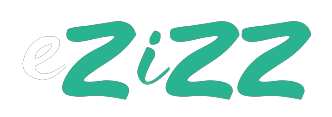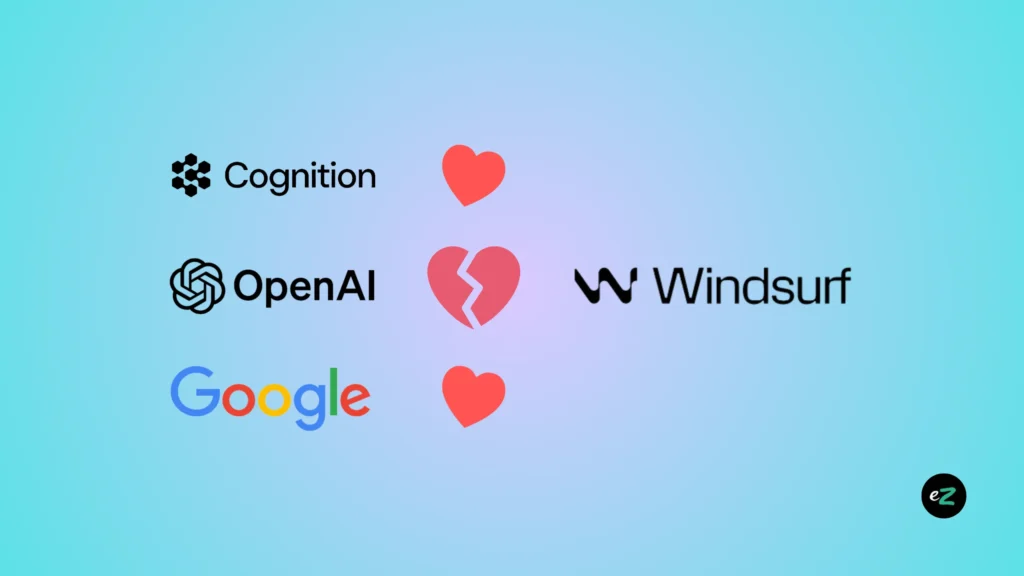Key Takeaways
- Google hired Windsurf’s CEO and engineers in a $2.4B deal.
- Cognition AI acquired Windsurf’s product, team, and IP.
- OpenAI dropped its $3B bid due to Microsoft entanglements.
- The split signals a new era of AI-driven developer tools.
- Cognition plans to merge Windsurf’s IDE with Devin.
In a stunning turn of events, AI startup Windsurf was split between two tech giants in just 72 hours. Google hired away the company’s CEO Varun Mohan and engineering leads in a $2.4 billion licensing and compensation deal—while Cognition AI swiftly acquired Windsurf’s remaining team, product, and intellectual property. The saga marks a defining moment in the AI coding space and signals a growing battle for agentic development dominance.
Windsurf: From Rising Star to Strategic Prize
Before the chaos, Windsurf was riding high. The company had built a developer platform using AI agents that accelerated software development. With more than 350 enterprise customers and over $80 million in annual recurring revenue, it had caught the attention of major players across the AI ecosystem.
But internal instability and a failed acquisition attempt by OpenAI left it vulnerable—and that’s when Google and Cognition made their moves.
Google’s Power Play: $2.4 Billion for Talent and Tech Access
Google’s deal didn’t involve buying Windsurf as a company. Instead, the tech giant focused on what it values most: elite talent.
Google hired Windsurf CEO Varun Mohan, co-founder Douglas Chen, and core engineers, bringing them into its DeepMind division to work on its Gemini AI platform. It also negotiated a non-exclusive license to parts of Windsurf’s proprietary technology—meaning Google can use the tech, but doesn’t own it.
According to sources, the total value of the transaction, including compensation and licensing fees, reached $2.4 billion. This kind of focused acqui-hiring is becoming increasingly common in AI, where top engineers are considered more valuable than entire startups.
Cognition’s Bold Counter: Acquiring the Windsurf
While Google took the leadership and some technology access, Cognition took everything else.
The AI startup—famous for creating Devin, the world’s first AI software engineer—acquired:
- Windsurf’s IDE with full access of the lastest Claude models.
- Its brand, trademarks, and intellectual property.
- Whole Business, the company’s $82 million of ARR (Annual Recurring Revenue) with its enterprise ARR doubling every quarter.
- The entire remaining workforce, over 350 enterprise customers and hundreds of thousands of users engage with the platform every day.
Cognition didn’t disclose the financial terms, but confirmed that the deal was structured to retain and reward all remaining employees, offering full equity vesting and no layoffs. Former Windsurf head of business Jeff Wang was named interim CEO, and VP of Sales Graham Moreno became company president.
The goal: to merge Windsurf’s powerful IDE with Cognition’s autonomous agent, creating a next-generation software development platform.
OpenAI’s Failed Bid: A $3 Billion Deal That Slipped Away
Earlier this year, OpenAI was reportedly close to acquiring Windsurf for $3 billion. But the deal fell apart. Industry insiders say concerns over intellectual property entanglements with Microsoft—OpenAI’s biggest partner—were a key reason.
With OpenAI out of the picture, Windsurf found itself in the middle of a fast-paced bidding war—one that would ultimately see it split in two.
Why This Matters: A New Era in AI Developer Tools
The fallout from the Windsurf saga goes far beyond one company.
This is a clear signal that the future of software development is shifting toward AI-first tooling—not just assistants, but full agentic systems that can reason, plan, and code autonomously.
- Google is betting big on integrating Windsurf’s talent into Gemini, its foundation model suite.
- Cognition is building a complete development environment where agents like Devin work inside smart IDEs, reshaping how engineers write software.
This is no longer about coding faster. It’s about building systems that can code for you—safely, efficiently, and at scale.
Leadership Reactions: Unity, Optimism, and Strategy
Cognition CEO Scott Wu emphasized team cohesion in a company-wide memo:
“Every new employee will be treated with transparency, fairness, and deep respect. There’s only one boat, and we’re all in it together.”
Jeff Wang, now interim CEO of Windsurf, posted:
“Trying times reveal character. I couldn’t be prouder of how the team showed up for each other—and our users.”
Varun Mohan co-founder of Windsurf, now at Google DeepMind, added:
“We’re proud of what Windsurf built over the past four years. We’re excited for this next chapter.”
Looking Ahead: What Comes Next for Windsurf and Cognition
With the acquisition complete, Cognition plans to:
- Keep Windsurf’s platform running and improving
- Integrate Devin directly into the IDE
- Create seamless agentic workflows for engineers at every skill level
This will likely make Cognition the first company to offer a fully autonomous software engineering system with real-time, production-grade tools.
Meanwhile, Google will leverage its newly hired team to improve Gemini’s agentic coding features, competing directly with tools like Devin, Anthropic’s Claude, and OpenAI’s ChatGPT Code Interpreter.
FAQs
No. Google hired key employees and licensed some technology. It doesn’t own Windsurf or its product.
Cognition AI. The company acquired Windsurf’s product, IP, and remaining team.
Devin is an autonomous AI coding agent created by Cognition. It can plan, write, and deploy software with minimal human input.
It refers to AI systems that not only assist with coding but can act independently—making decisions, fixing bugs, and writing full applications.
Reportedly due to complications involving Microsoft and concerns over IP control.
Yes. Cognition plans to maintain and evolve it as part of a larger AI-powered developer suite.

